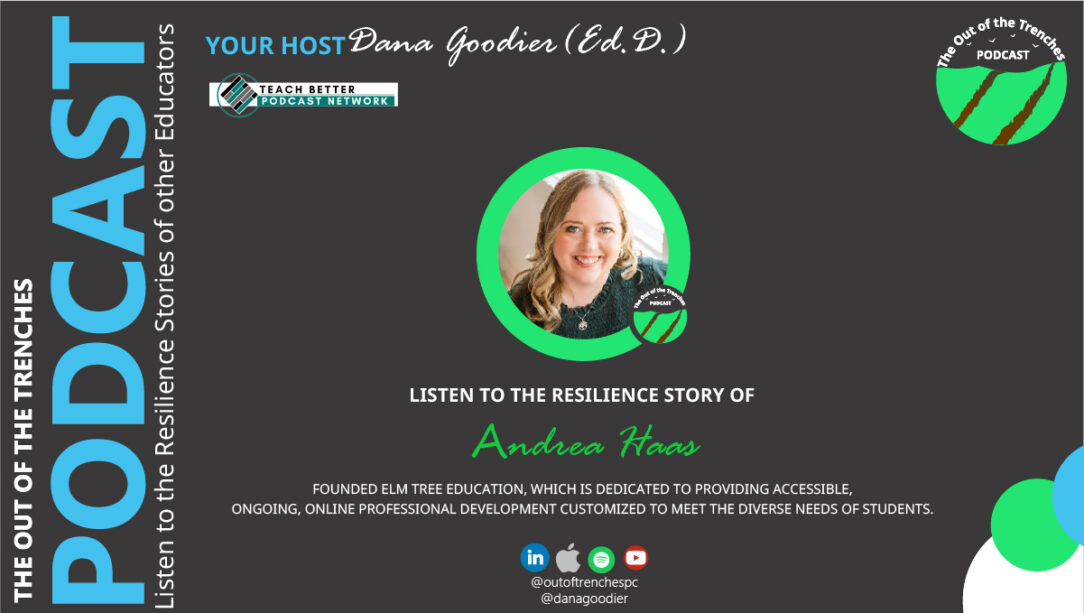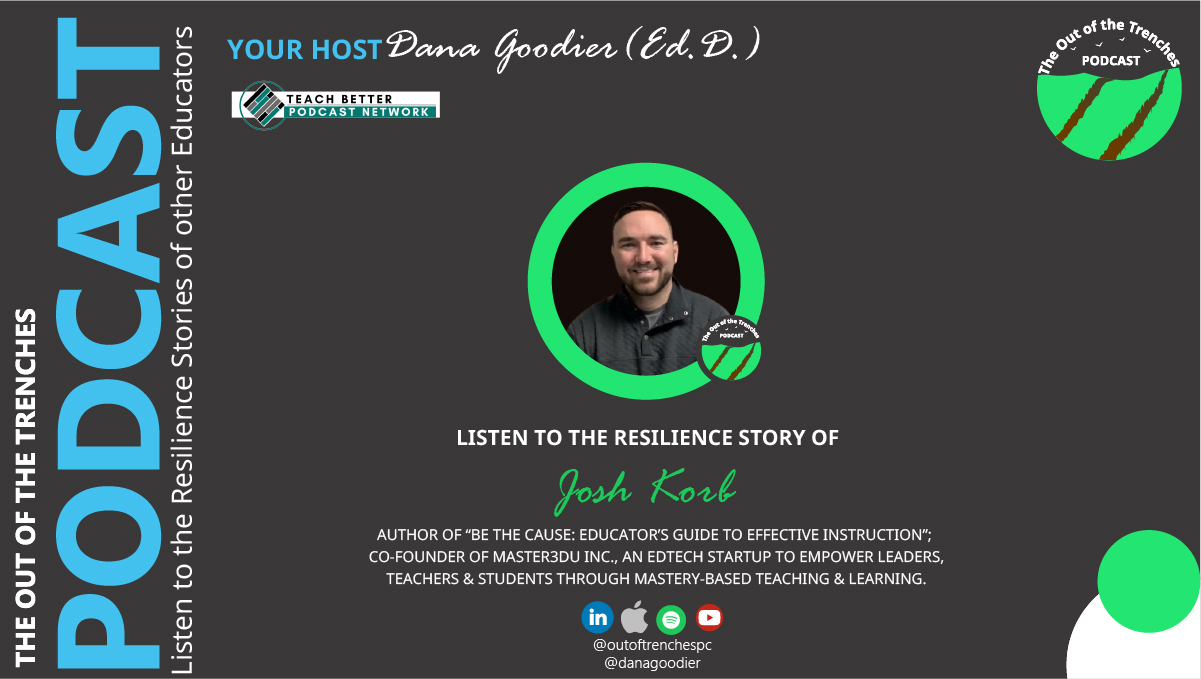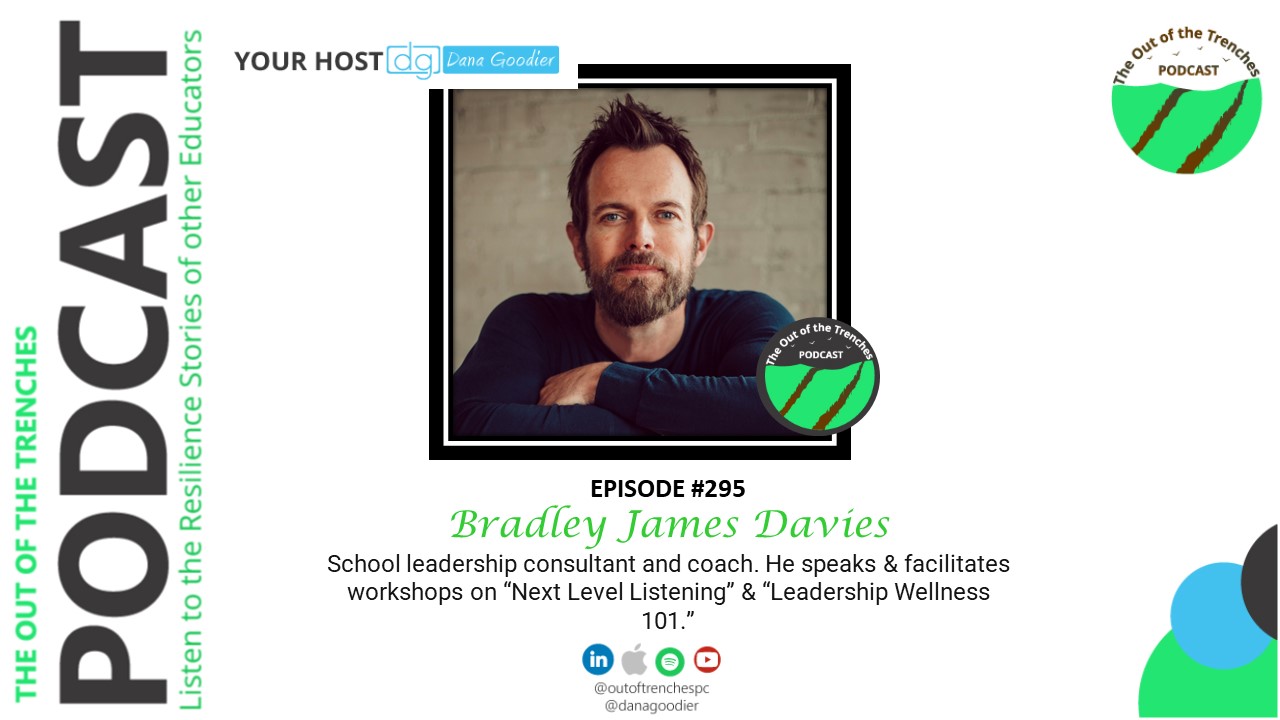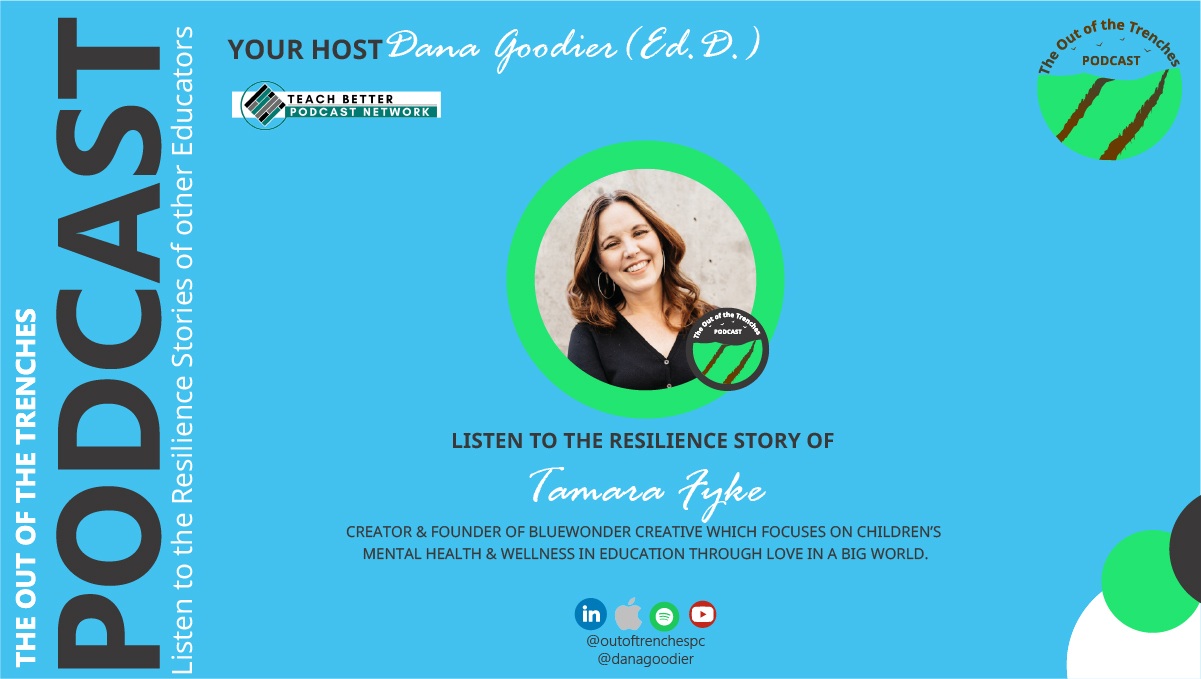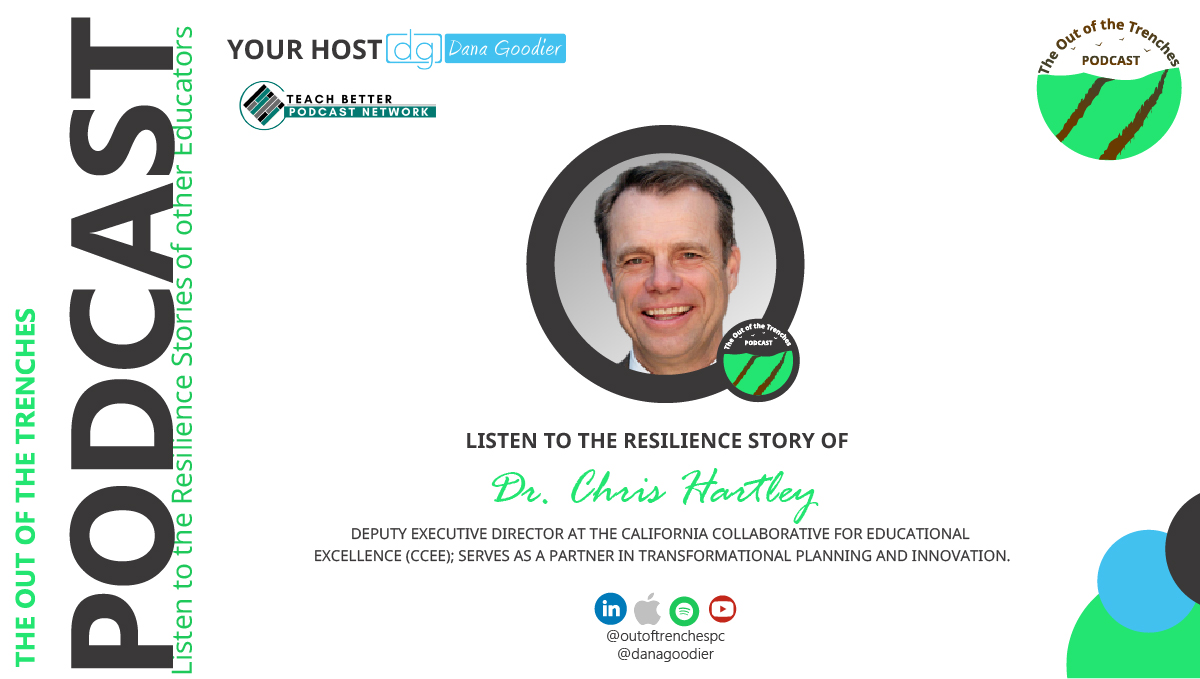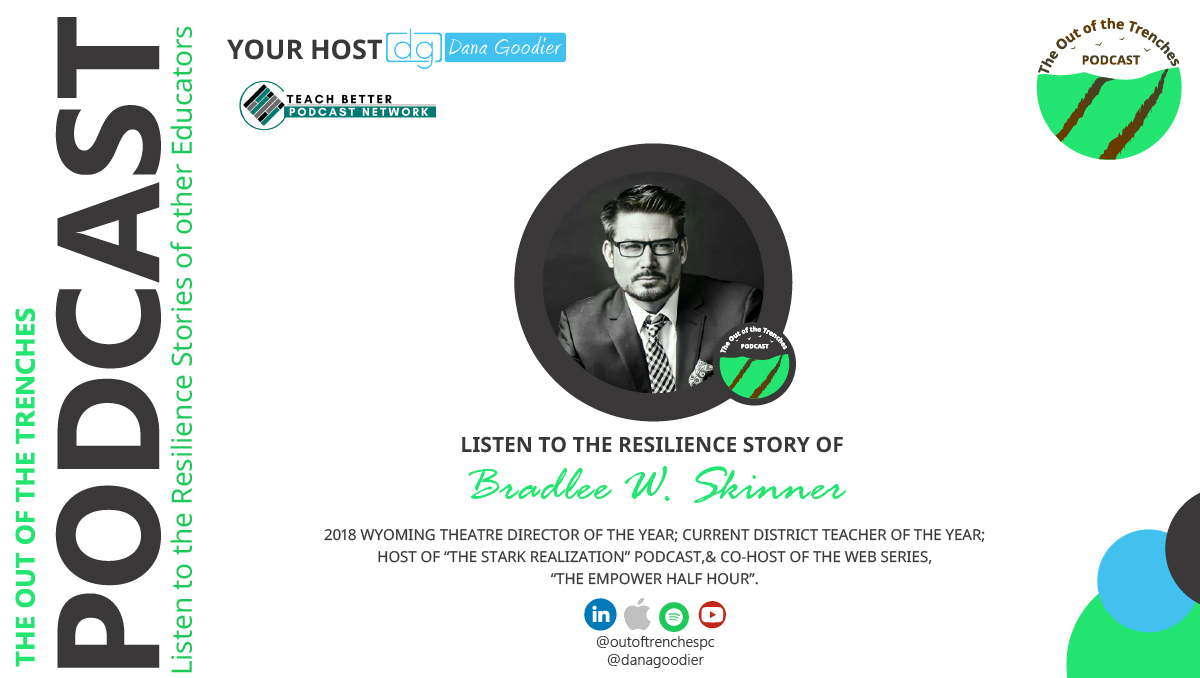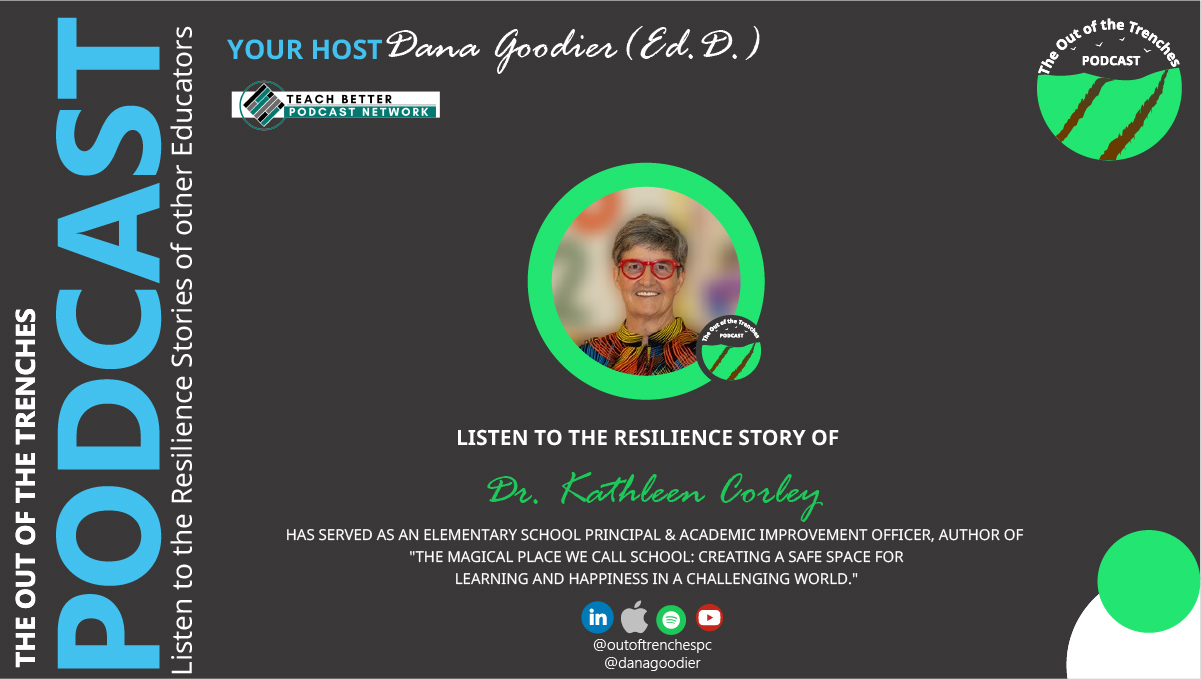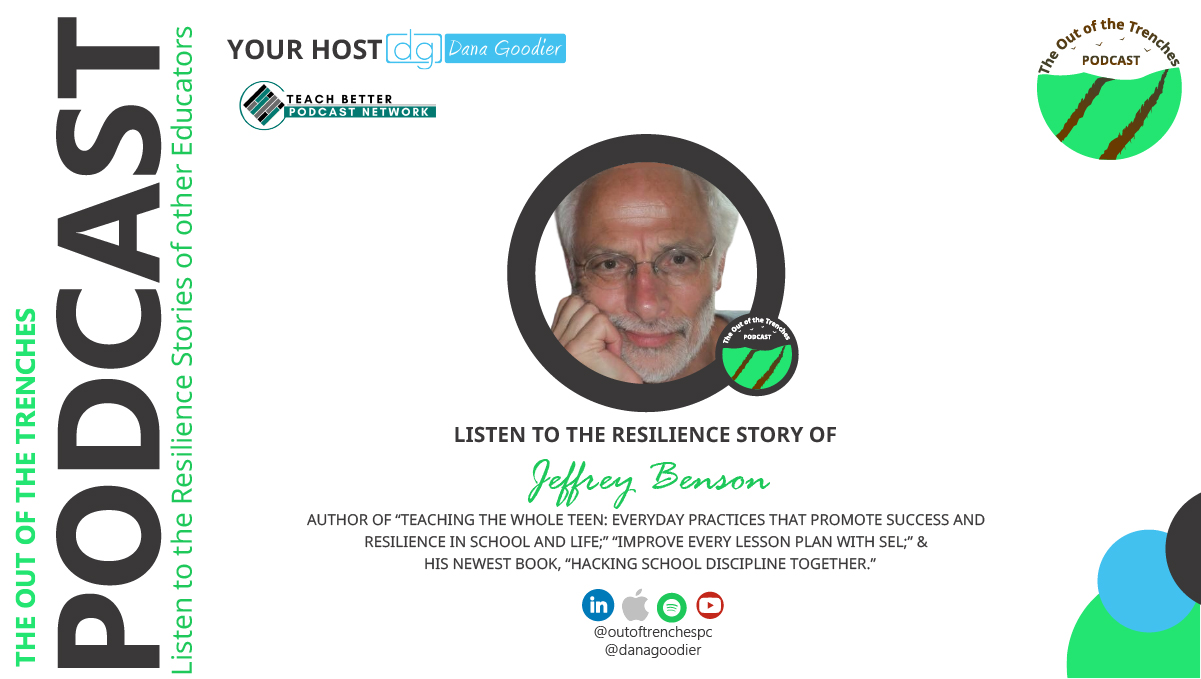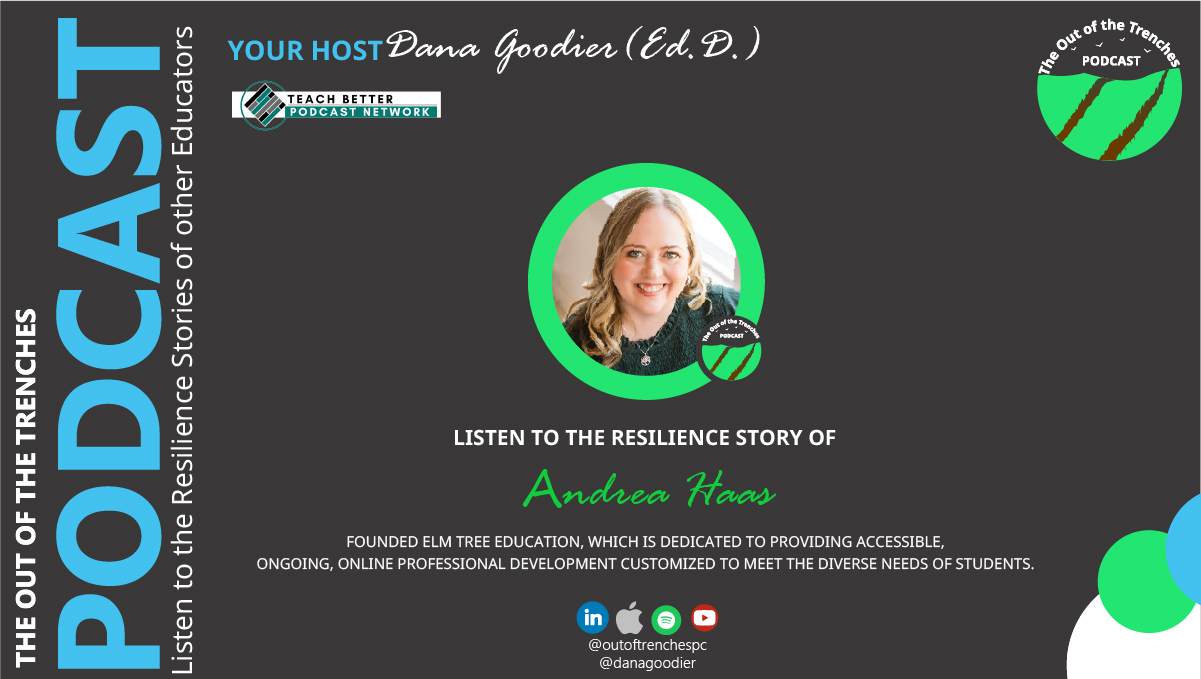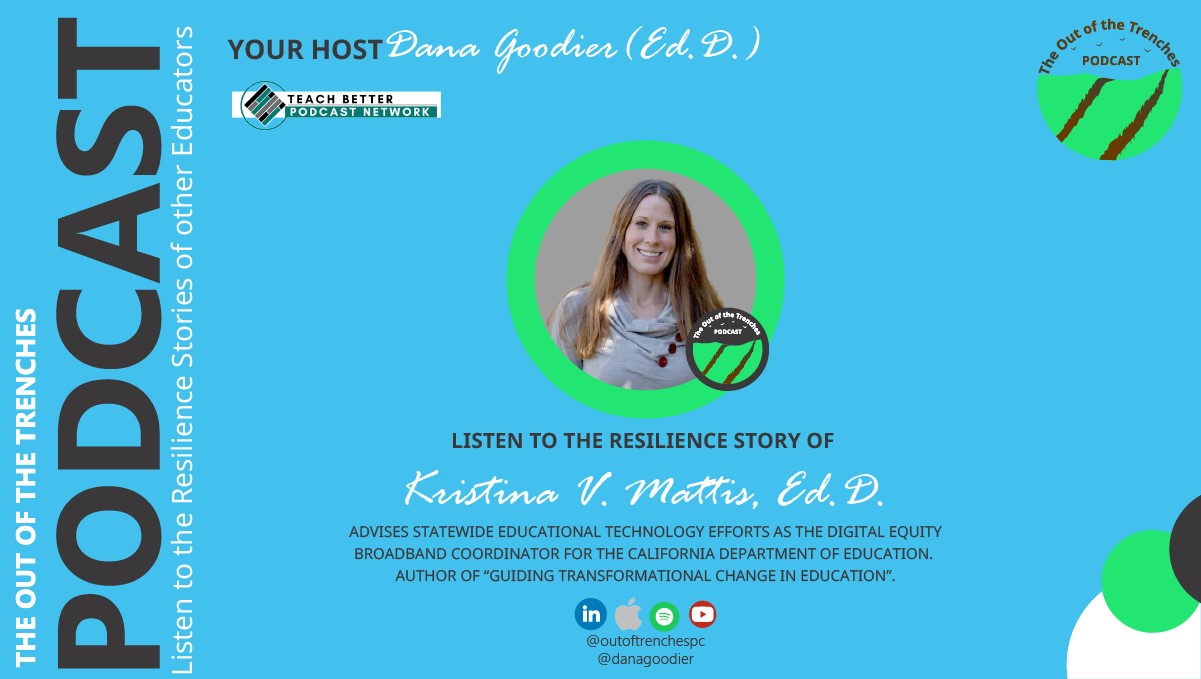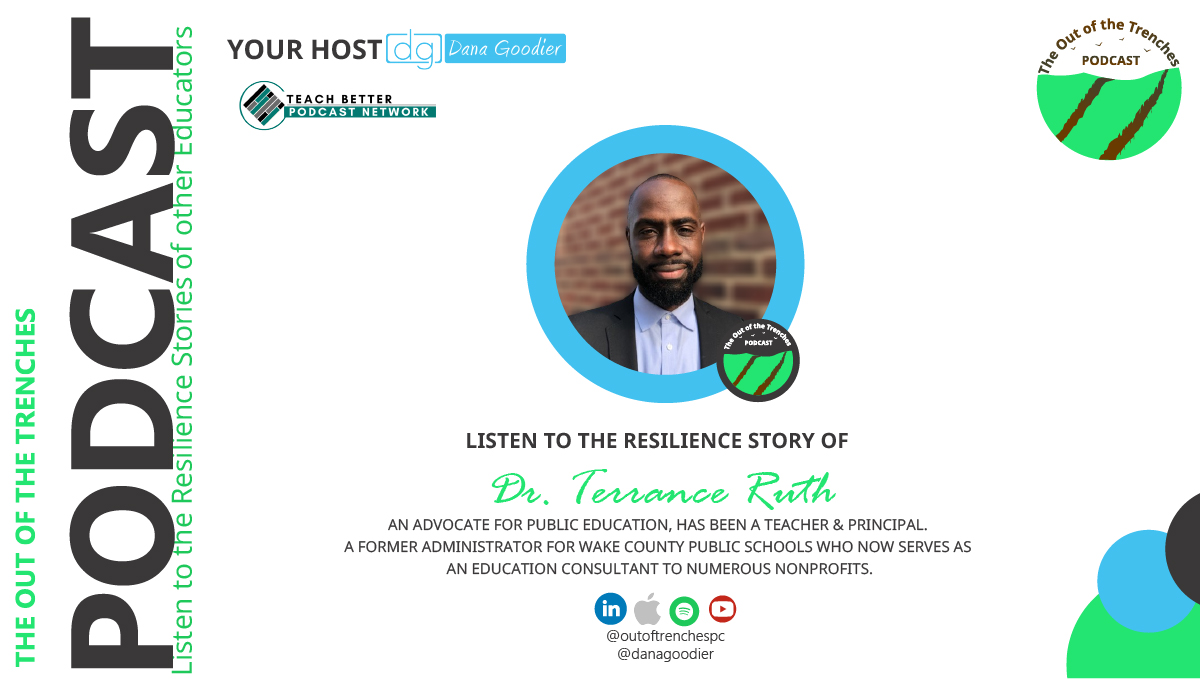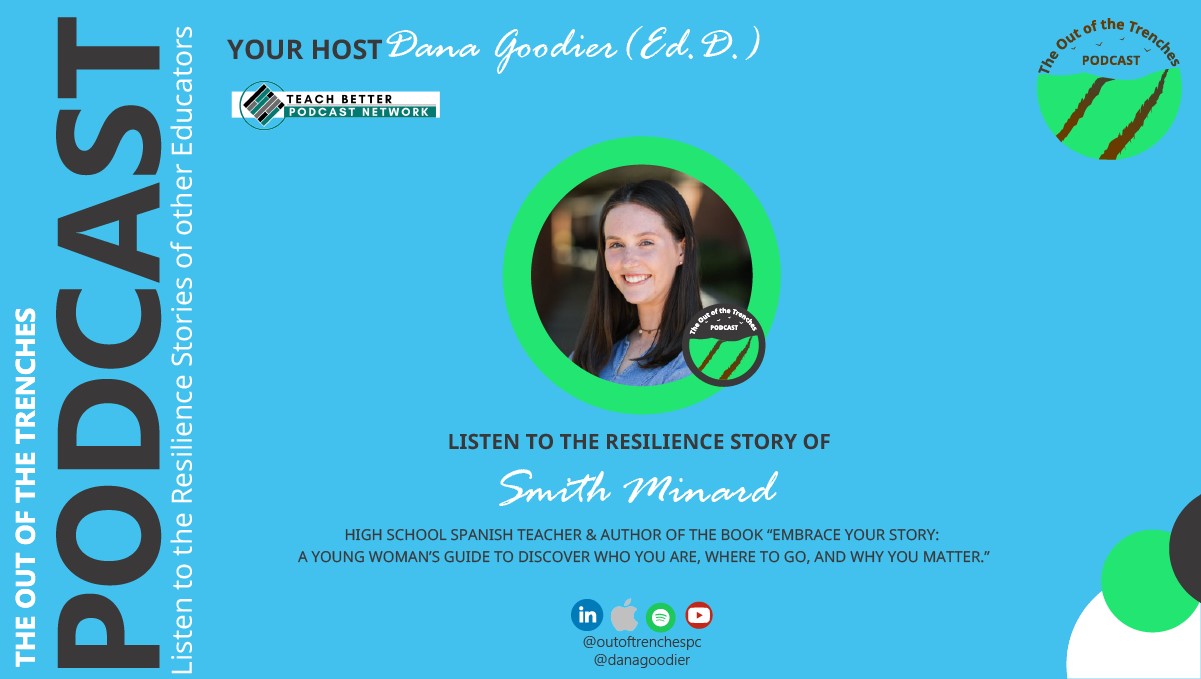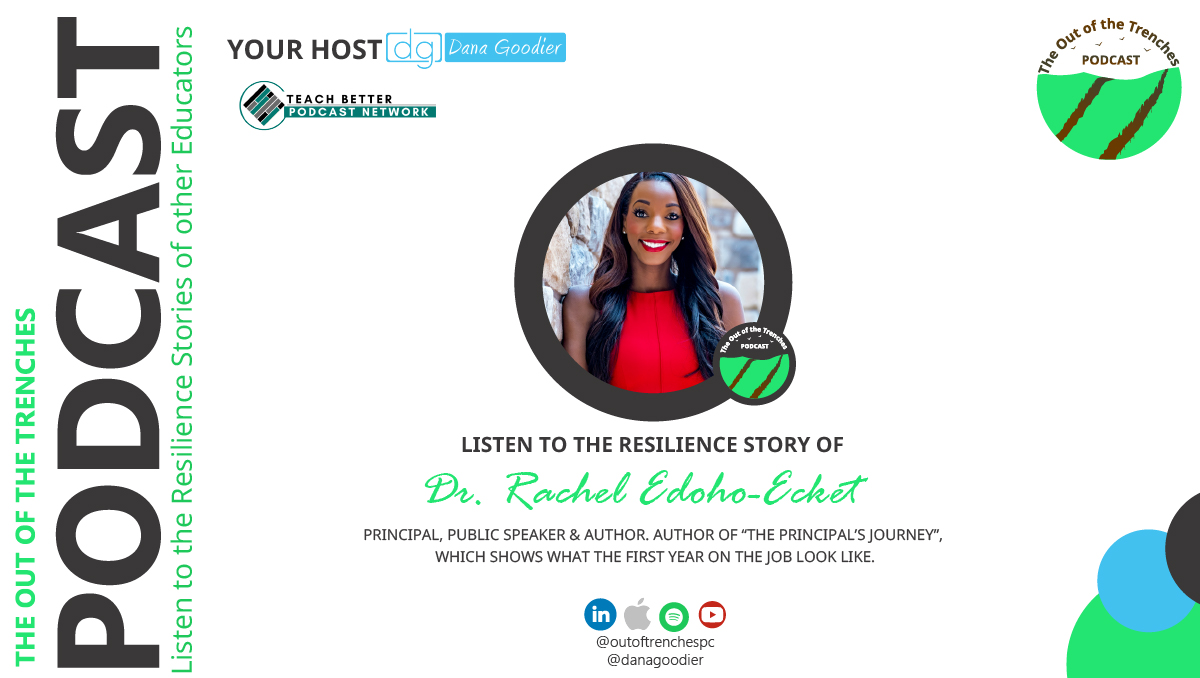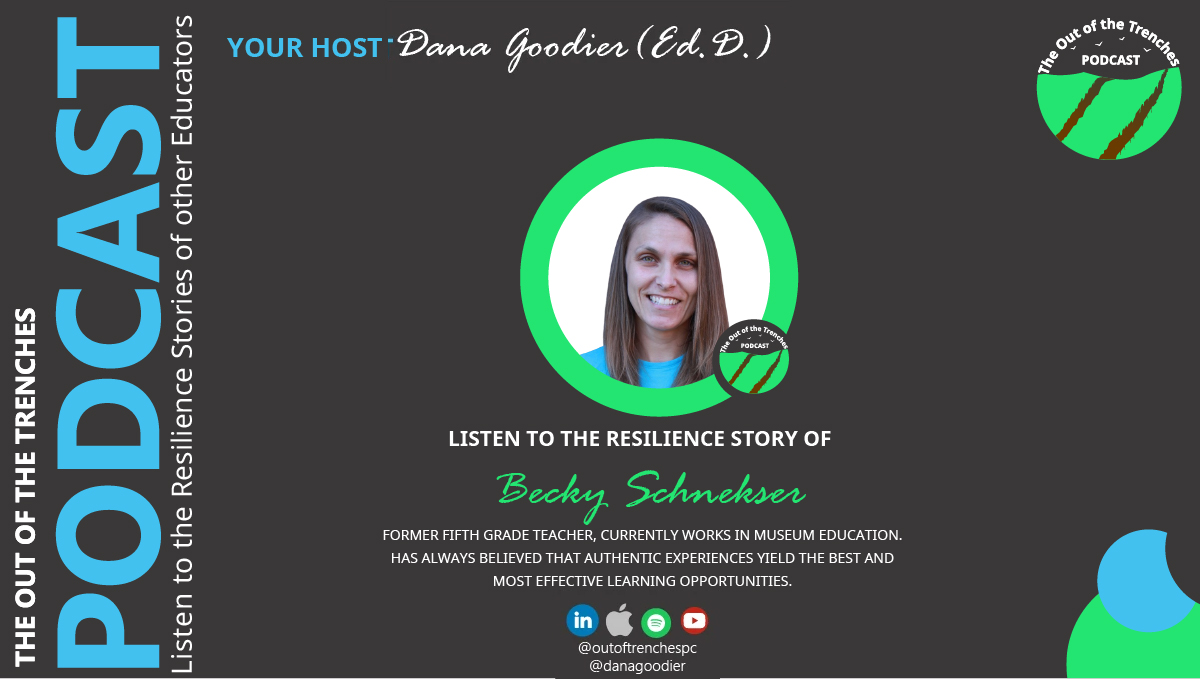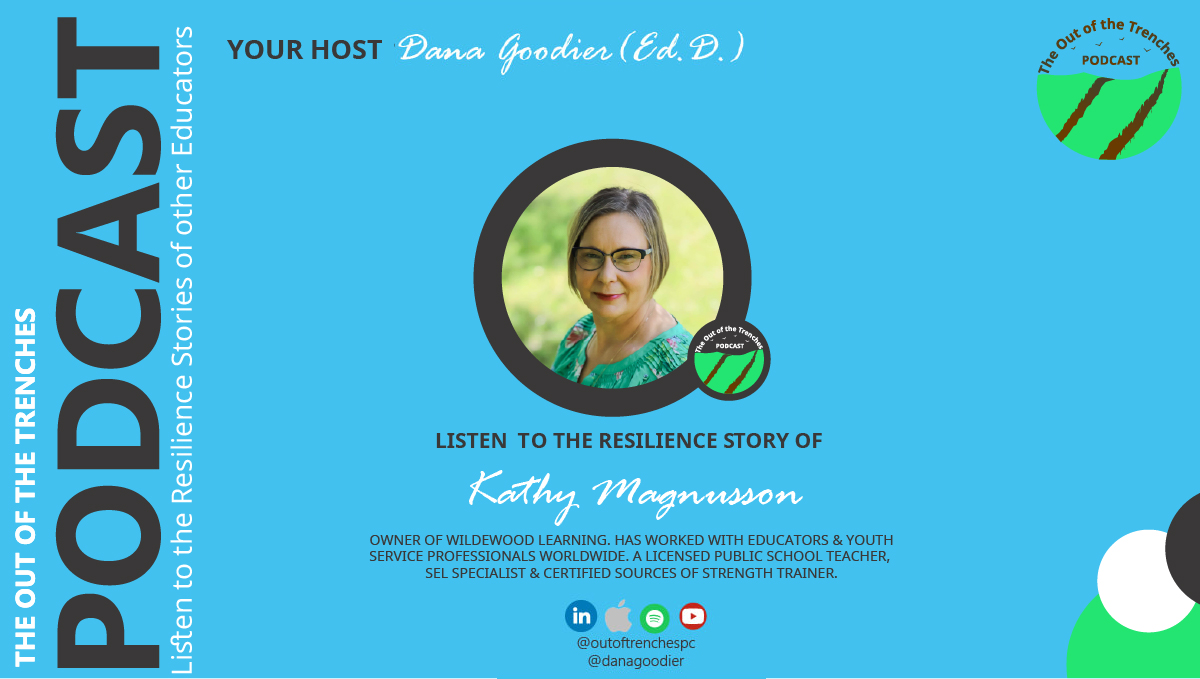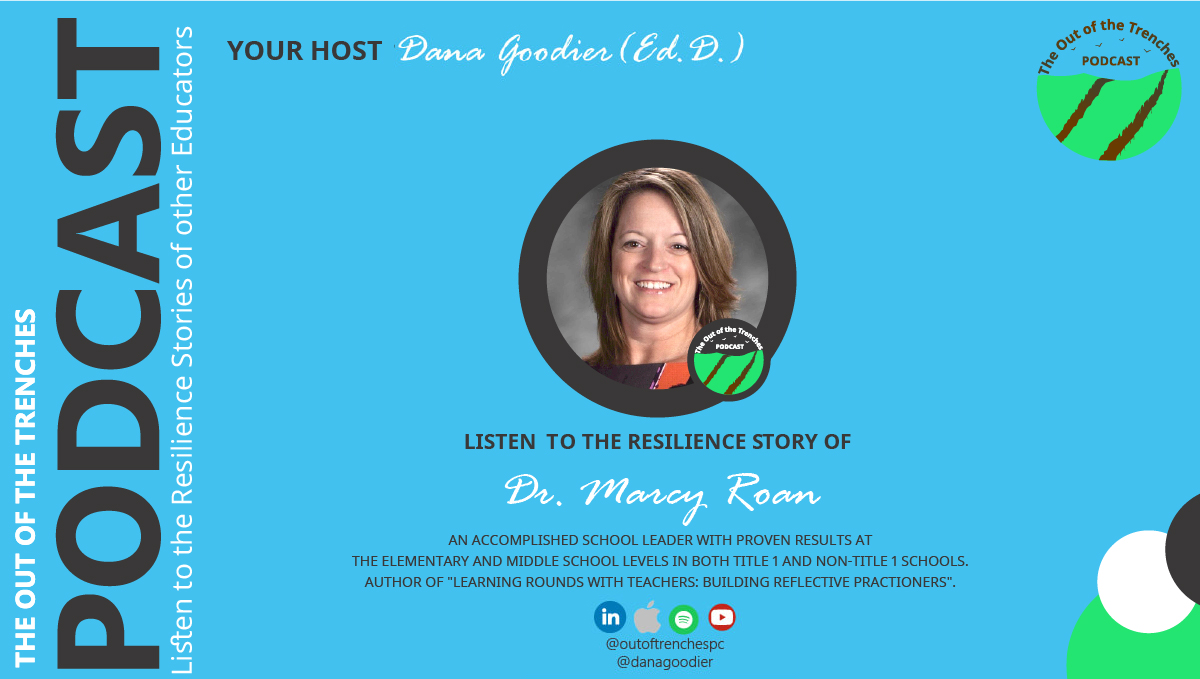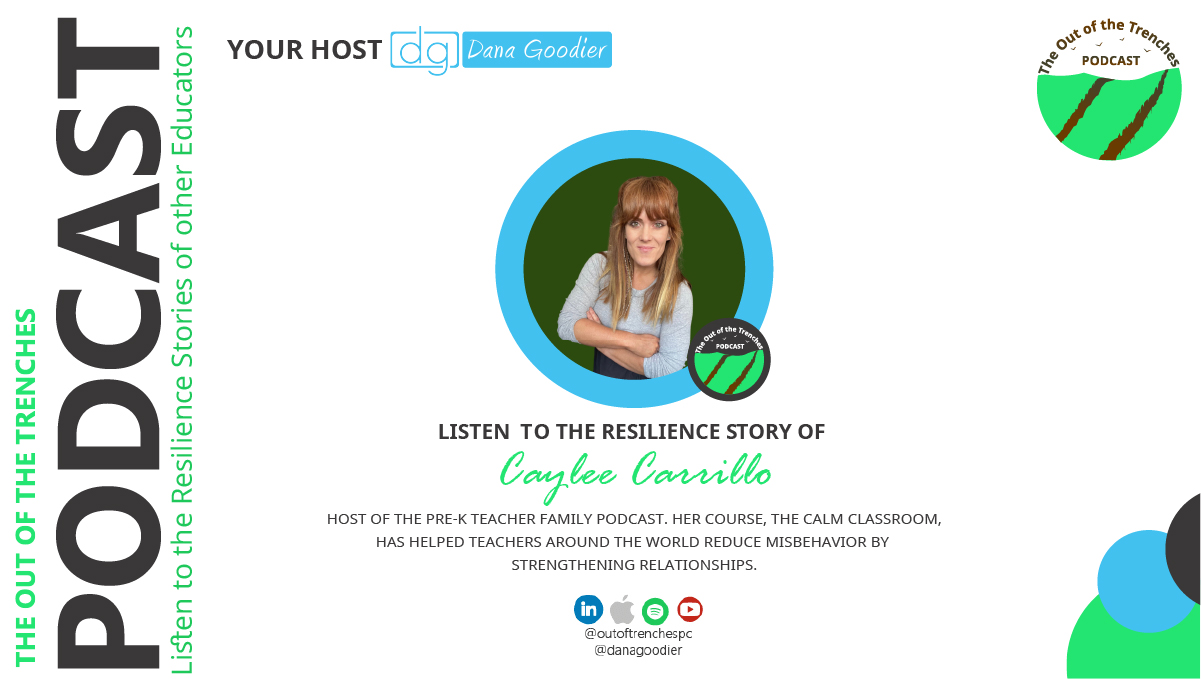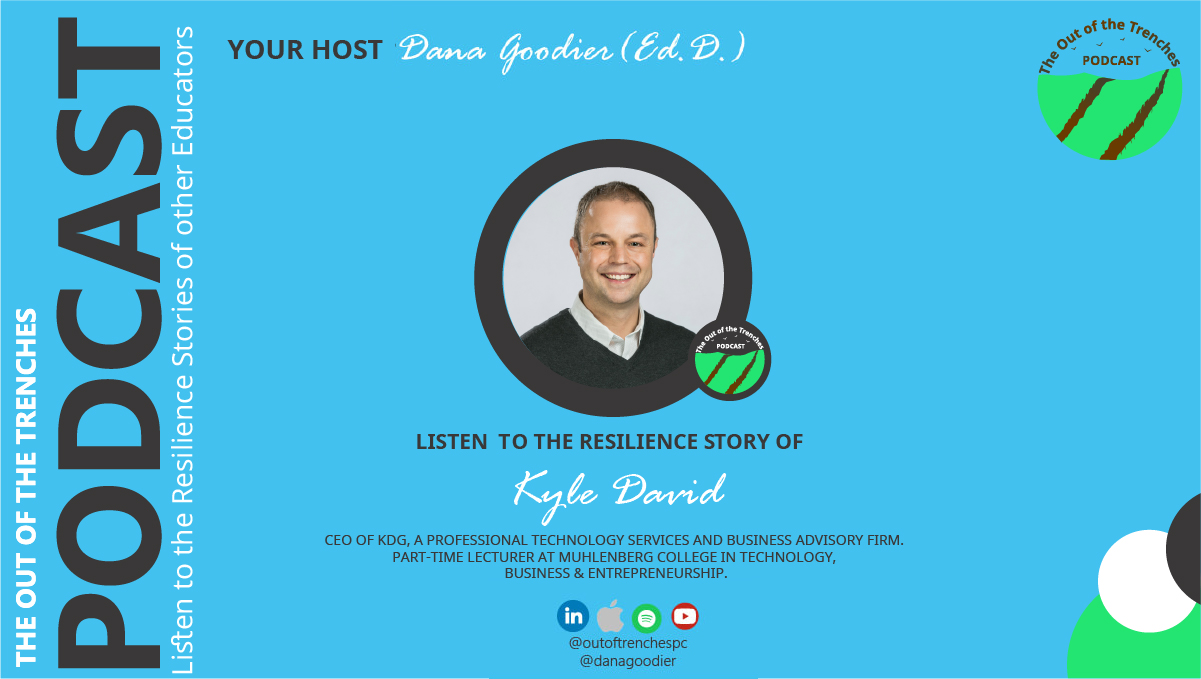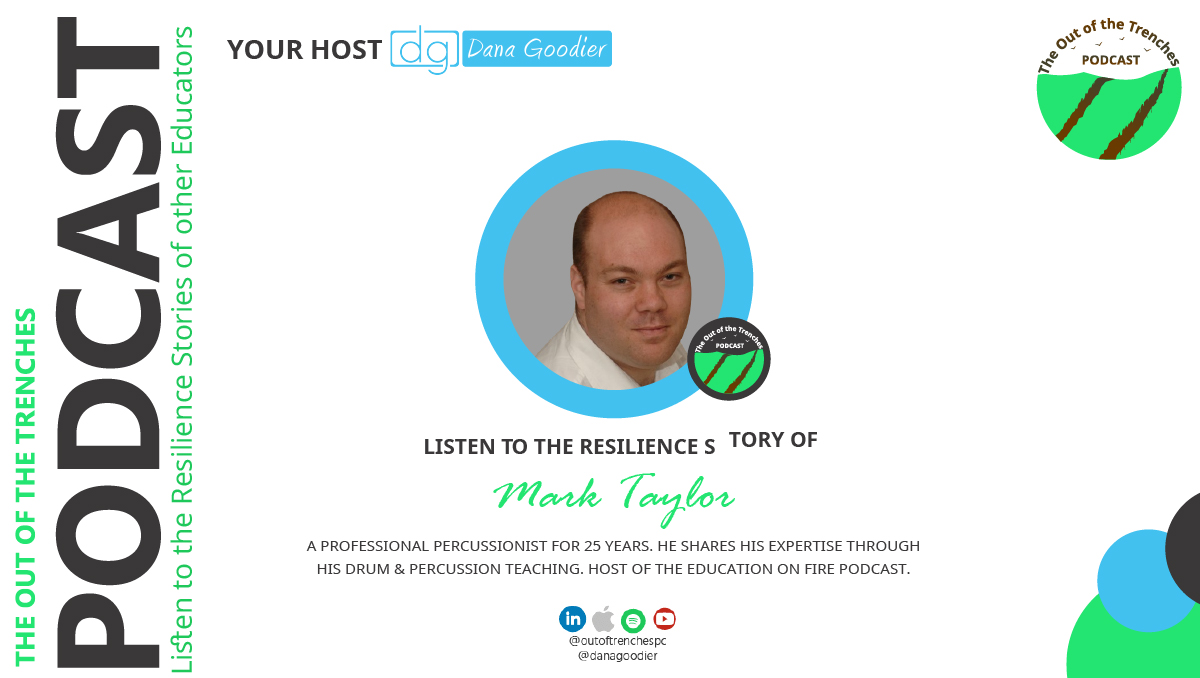With over two decades of experience in education and a desire to keep good teachers in the profession, Andrea founded Elm Tree Education. Elm Tree is dedicated to providing accessible, ongoing, online professional development customized to meet the diverse needs of students. Andrea, a Nationally Board Certified teacher in Literacy, has an extensive background in designing professional development programs for teachers and mentoring educators. Her unwavering passion lies in literacy instruction, particularly in cultivating practices that embrace the whole child and prioritize cultural responsiveness and inclusivity.
Trenches story: has had a lot of transitions over the years, 20+ yrs. Gen-ed, TOSA, sped, was also an induction mentor. Her personality is that when she got to a position she’d “handled”, she had a 5 yr itch, do something different. Looked like changing districts, grade levels, sped to general ed. Never wanted to be an admin but wanted to effect change while working w/ t’s. She offers PD online b/c not all t’s have access to PD in district. W/ workshops you don’t always look @ things again. So many other things take priority to t growth, learning that’s PD is on back burner. Elm Tree follows through- is in pilot phase “flipped cr”, videos 1x/wk t’s in a building can watch. Then will have a zoom the next wk. After 5 wks, another coaching call.
Could you elaborate on how the “Science of Reading” might oversimplify the multifaceted nature of reading instruction? mostly at ES level. Can be used in some MS, her experience is K-8. Technically it’s about teaching kids how to read, they get into MS often and can’t read. How you read a history/science text are going to be different. We can tie in vocab acquisition. Her teaching background is ES. PPl’s definition of science of reading gets lost in translation. It’s not just about decoding words off the pg, it’s also about comprehension. Are you doing reading at the expense of other things? All this convo around scripted curricula is frustrating b/c we’ve already figured out that doesn’t work. It’s like we’re trying to put a bandaid on a gash on the head. It’s her “why”. She wants to keep good t’s in the profession.
Vocab acquisition for ELDs: she can see the big system and how they’re suddenly immersed- they’ve had a lot asked of them w/o doing all the activities in text. Books being used now for reading for ELDs are more age-appropriate.Find out where they’re strong. Maybe their home language has a rich oral history. Stop thinking we need to get MLLs caught up.
Could you share some common obstacles teachers face when differentiating instruction and provide insights on practical strategies to address these challenges? Getting to know your st’s is one of the easiest way to differentiate. Involve them in the process. Not school is done “to them”. Not being cognitively engaged, only being compliant. A lot of t’s know what it is, but are they actually doing it? Tricky part about curriculum scaffolds is that they make a lot of assumptions about the kids in front of you- don’t take culturally responsive pedagogy into mind nor trauma-informed practices. Curricula try to throw everything into it. T’s need to filter through it. In terms of specific interventions for newcomer MLLs, look at something that has a heavy emphasis on letters, early literacy. Some companies are trying to write decodable text for older kids. Find ways to have kids self-assess..
Can you provide some strategies for teachers to critically evaluate and select effective curriculum materials and resources for reading instruction? Many things are stamped “evidence-based”. That is a buzz word, marketing term. Publishers perhaps threw together curricula quickly and districts are putting millions into it. They put everything & kitchen sink into some curricula. “The Basal bloat”- how do you prioritize? Ultimately we’d give t’s more time to grapple, try things on & create their own curricula.
In what ways do teacher preparation programs fall short when it comes to preparing educators for the realities of teaching reading and writing? because this does go content. Univ’s are a business as well “become a teacher quick”. Most of these juggle st teaching @ same time. She wishes t’s could do a residency program-experiences in diff. settings.
How is a teacher supposed to “separate the sheep from the goats” when it comes to figuring out most effective ways to teach reading? In terms of where t’s are getting their info from, TicToc or IG-which aren’t trusted sources. Some misconceptions are when you put your intention into phonics, f.ex. you can’t do it at the expense of emphasis on the other things that matter. They are telling ppl their interpretation of the science of reading. Gap b/w research & practice. They have a hypothesis they’re trying to prove. How does it transfer to how do you do this in the CR? Things that aren’t clear or certain folks who have certain agendas are taking a narrow view of the science. Not a new “war” of agendas. Science of reading doesn’t = phonics. Gap b/w research & practice. there isn’t a silver bullet- “if you do this, kids will read”. Be a critical consumer. Think about what YOUR kids really need.Don’t loose hope that you can find out what will work w/ your kids. She tries to show research from different organizations on her website.
Can you share some practical steps teachers can take to foster greater student agency and classroom engagement? How much of your teaching time is you talking? Are you a lecturer, facilitator, tutor? She can talk to students having the choice & voice in how they respond, setting indiv. goals based on their own self-reflection/self-assessment. Make personal connections with them & connection to their lives. Pass over some of the control. It doesn’t always have to be the same path to get places.
Out of everything: If you can get quiet & tune out the noise, be true to who you are as a teacher. Have that at top of your mind. Click To TweetDon’t put square peg in round hole. Acknowledge there’s an art to this. How can you make a change if you’re up against systems? Put yourself back in it.
Where can ppl find you online: https://www.elmtreeed.com/joinus
If listeners join her mailing list, they will receive weekly updates on free teaching tips (she calls these Lit Bits), new resources, courses, & coaching offers. Those on the mailing list will get discounted pricing on any course or coaching offerings.
https://www.facebook.com/andrea.w.haas
https://www.instagram.com/elmtreeed/
https://www.linkedin.com/in/andrea-nw-haas/
https://www.youtube.com/@elmtreeeducation
IG: Youtube: she has “lit bits”. Follow her on FB or @andreawegershaas
View this episode on YouTube: https://youtu.be/8gXt8xyTv1c
MORE EPISODES

